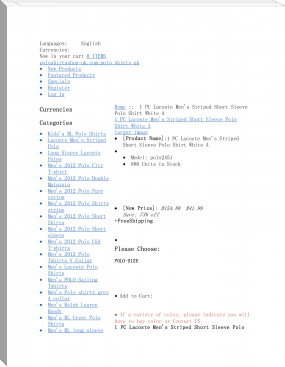The Ghost Kings - H. Rider Haggard (moboreader TXT) 📗

- Author: H. Rider Haggard
Book online «The Ghost Kings - H. Rider Haggard (moboreader TXT) 📗». Author H. Rider Haggard
The Boers were furious and threatened to shoot him as a slanderer. The English authorities were also furious, and requested him to cease from controversy or to leave the country. At last, stubborn as he might be, circumstances proved too much for him, and as his conscience would not allow him to be silent, Mr. Dove chose the latter alternative. The only question was whither he should go. As he was well off, having inherited a moderate fortune in addition to what he had before he left England, his poor wife pleaded with him to return home, pointing out that there he would be able to lay his case before the British public. This course had attractions for him, but after a night's reflection and prayer, he rejected it as a specious temptation sent by Satan.
What, he argued, should he return to live in luxury in England not only unmartyred but a palpable failure, his mission quite unfulfilled? His wife might go if she liked, and take their surviving children, Rachel and the new-born baby boy, with her (they had buried two other little girls), but he would stick to his post and his duty. He had seen some Englishmen who had visited the country called Natal where white people were beginning to settle. In that land it seemed there were no slave-driving Boers, and the natives, according to all accounts, much needed the guidance of the Gospel, especially a certain king of the people called Zulus, who was named Chaka or Dingaan, he was not sure which. This ferocious person he particularly desired to encounter, having little doubt that in the absence of the contaminating Boer, he would be able to induce him to see the error of his ways and change the national customs, especially those of fighting and, worse still, of polygamy.
His unhappy wife listened and wept, for now the martyr's crown which she had always foreseen, seemed uncomfortably near, indeed as it were, it glowed blood red within reach of her hand. Moreover, in her heart she did not believe that Kaffirs could be converted, at any rate at present. They were fighting men, as her Highland forefathers had been, and her Scottish blood could understand the weakness, while, as for this polygamy, she had long ago secretly concluded that the practice was one which suited them very well, as it had suited David and Solomon, and even Abraham. But for all this, although she was sure in her uncanny fashion that her baby's death would come of her staying, she refused to leave her husband as she had refused eleven years before.
Doubtless affection was at the bottom of it, for Janey Dove was a very faithful woman; also there were other things--her fatalism, and stronger still, her weariness. She believed that they were doomed. Well, let the doom fall; she had no fear of the Beyond. At the best it might be happy, and at the worst deep, everlasting rest and peace, and she felt as though she needed thousands of years of rest and peace. Moreover, she was sure no harm would come to Rachel, the very apple of her eye; that she was marked to live and to find happiness even in this wild land. So it came about that she refused her husband's offer to allow her to return home where she had no longer any ties, and for perhaps the twentieth time prepared herself to journey she knew not whither.
Rachel, seated there in the sunless, sweltering heat, reflected on these things. Of course she did not know all the story, but most of it had come under her observation in one way or other, and being shrewd by nature, she could guess the rest, for she who was companionless had much time for reflection and for guessing. She sympathised with her father in his ideas, understanding vaguely that there was something large and noble about them, but in the main, body and mind, she was her mother's child. Already she showed her mother's dreamy beauty, to which were added her father's straight features and clear grey eyes, together with a promise of his height. But of his character she had little, that is outside of a courage and fixity of purpose which marked them both.
For the rest she was far, or fore-seeing, like her mother, apprehending the end of things by some strange instinct; also very faithful in character.
Rachel was unhappy. She did not mind the hardship and the heat, for she was accustomed to both, and her health was so perfect that it would have needed much worse things to affect her. But she loved the baby that was gone, and wondered whether she would ever see it again. On the whole she thought so, for here that intuition of hers came in, but at the best she was sure that there would be long to wait. She loved her mother also, and grieved more for her than for herself, especially now when she was so ill. Moreover, she knew and shared her mind. This journey, she felt, was foolishness; her father was a man "led by a star" as the natives say, and would follow it over the edge of the world and be no nearer. He was not fit to have charge of her mother.
Of herself she did not think so much. Still, at Grahamstown, for a year or so there had been other children for companions, Dutch most of them, it is true, and all rough in mind and manner. Yet they were white and human. While she played with them she could forget she knew so much more than they did; that, for instance, she could read the Gospels in Greek--which her father had taught her ever since she was a little child--while they could scarcely spell them out in the Taal, or Boer dialect, and that they had never heard even of William the Conqueror. She did not care particularly about Greek and William the Conqueror, but she did care for friends, and now they were all gone from her, gone like the baby, as far off as William the Conqueror. And she, she was alone in the wilderness with a father who talked and thought of Heaven all day long, and a mother who lived in memories and walked in the shadow of doom, and oh! she was unhappy.
Her grey eyes filled with tears so that she could no longer see that everlasting ocean, which she did not regret as it wearied her. She wiped them with the back of her hand that was burnt quite brown by the sun, and turning impatiently, fell to watching two of those strange insects known as the Praying Mantis, or often in South Africa as Hottentot gods, which after a series of genuflections, were now fighting desperately among the dead stalks of grass at her feet. Men could not be more savage, she reflected, for really their ferocity was hideous. Then a great tear fell upon the head of one of them, and astonished by this phenomenon, or thinking perhaps that it had begun to rain, it ran away and hid itself, while its adversary sat up and looked about it triumphantly, taking to itself all the credit of conquest.
She heard a step behind her, and having again furtively wiped her eyes with her hand, the only handkerchief available, looked round to see her father stalking towards her.
"Why are you crying, Rachel?" he asked in an irritable voice. "It is wrong to cry because your little brother has been taken to glory."
"Jesus cried over Lazarus, and He wasn't even His brother," she answered in a reflective voice, then by way of defending herself added inconsequently: "I was watching two Hottentot gods fight."
As Mr. Dove could think of no reply to her very final Scriptural example, he attacked her on the latter point.
"A cruel amusement," he said, "especially as I have heard that boys, yes, and men, too, pit these poor insects against each other, and make bets upon them."
"Nature, is cruel, not I father. Nature is always cruel," and she glanced towards the little grave under the rock. Then, while for the second time her father hesitated, not knowing what to answer, she added quickly, "Is mother better now?"
"No," he said, "worse, I think, very hysterical and quite unable to see things in the true light."
She rose and faced him, for she was a courageous child, then asked:
"Father, why don't you take her back? She isn't fit to go on. It is wrong to drag her into this wilderness."
At this question he grew very angry, and began to scold and to talk of the wickedness of abandoning his "call."
"But mother has not got a 'call,'" she broke in.
Then, as for the third time he could find no answer, he declared vehemently that they were both in league against him, instruments used by the Evil One to tempt him from his duty by working on his natural fears and affections, and so forth.
The child watched him with her clear grey eyes, saying nothing further, till at last he grew calm and paused.
"We are all much upset," he went on, rubbing his high forehead with his thin hand. "I suppose it is the heat and this--this--trial of our faith. What did I come to speak to you about? Oh! I remember; your mother will eat nothing, and keeps asking for fruit. Do you know where there is any fruit?"
"It doesn't grow here, father." Then her face brightened, and she added: "Yes, it does, though. The day that we outspanned in this camp mother and I went down to the river and walked to that kind of island beyond the dry donga to get some flowers that grow on the wet ground. I saw lots of Cape gooseberries there, all quite ripe."
"Then go and get some, dear. You will have plenty of time before dark."
She started up as though to obey, then checked herself and said:
"Mother told me that I was not to go to the river alone, because we saw the spoor of lions and crocodiles in the mud."
"God will guard you from the lions and the crocodiles, if there are any," he answered doggedly, for was not this an opportunity to show his faith? "You are not afraid, are you?"
"No, father. I am afraid of nothing, perhaps because I don't care what happens. I will get the basket and go at once."
In another minute she was walking quickly towards the river, a lonely little figure in that great place. Mr. Dove watched her uneasily till she was hidden in the haze, for his reason told him that this was a foolish journey.
"The Lord will send His angels to protect her," he muttered to himself. "Oh! if only I could have more faith, all these troubles come upon me from a lack of faith, and through that I am continually tempted. I think I will run after her and go, too. No, there is Janey calling me, I cannot leave her alone. The Lord will protect her, but I need not mention to Janey that she has gone, unless she asks me outright. She will be quite safe, the storm will not break to-night."





Comments (0)